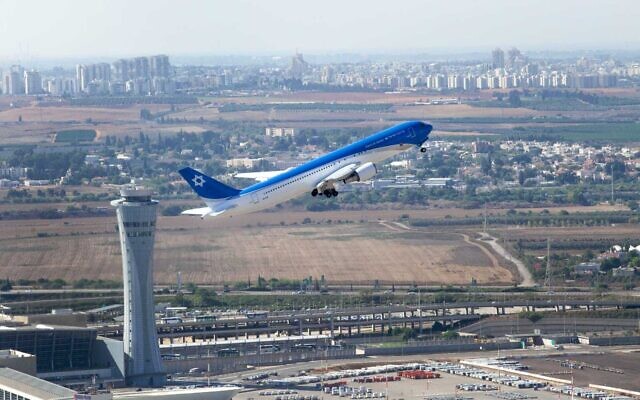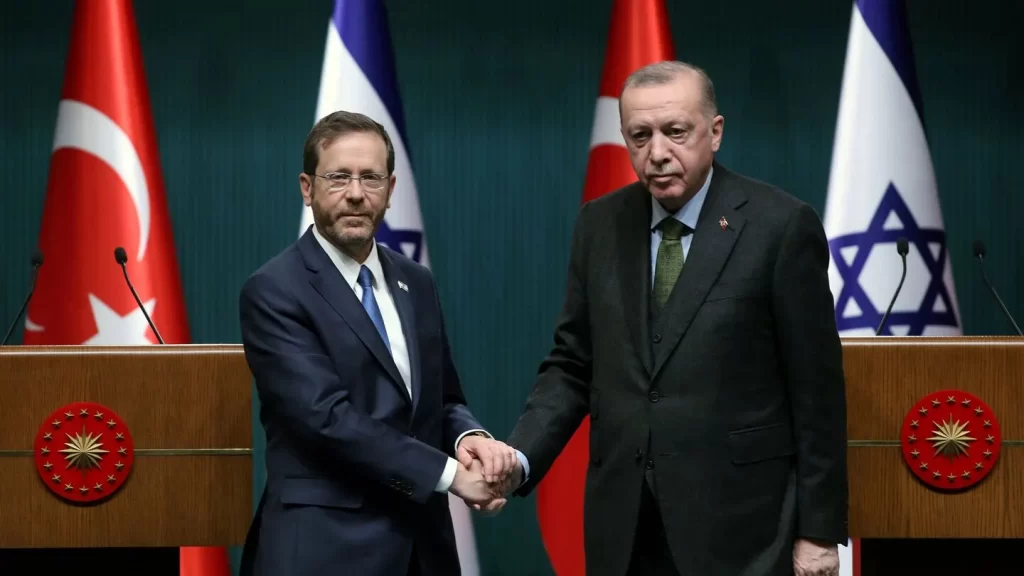Turkey Blocks Israeli President Herzog’s Flight to COP29 Summit
The decision of Turkey to deny Israeli President Isaac Herzog’s plane access to its airspace has sparked renewed tensions between the two nations, officials confirmed. The incident occurred ahead of the COP29 United Nations Climate Change Conference held in Baku, Azerbaijan, on November 12-13.

The Denied Request
Israeli authorities had requested clearance for Herzog’s aircraft to pass through Turkish airspace en route to Baku. Official Turkish sources confirmed the rejection of this request, stating that “permission for flyover was not granted.” The report was first revealed by Azerbaijani media and later verified by Turkish officials.
Herzog, who was expected to lead the Israeli delegation at the summit, ultimately canceled his visit, citing “security concerns.” Despite this, other members of the Israeli delegation, including ministers of environmental protection, energy, and transportation, attended the event. It remains unclear which alternative flight route they used, though flights between Tel Aviv and Baku continue to operate without interruption.

A Deteriorating Relationship
The denial of airspace reflects the recent deterioration in Turkey-Israel relations, despite previous attempts at normalization. In March 2022, Herzog became the first Israeli president to visit Turkey since 2007, marking a brief thaw in a decade of strained ties largely driven by disagreements over the Palestinian issue. By August of the same year, the two countries reinstated ambassadors, signaling a full normalization of relations.
However, the escalation of the Hamas-Israel conflict on October 7, 2023, has reignited tensions. Turkish President Recep Tayyip Erdoğan, a vocal supporter of the Palestinian cause, has intensified his criticism of Israeli policies. Large-scale protests in Turkey against Israel’s actions further strained diplomatic ties, prompting Israel to reassess its relationship with Ankara. In late October, Israel announced it would not return its ambassador to Turkey, citing security concerns.

Turkey, in turn, recalled its ambassador to Israel in November 2023. Notably, Turkey does not classify Hamas as a terrorist organization, allowing its political leaders to travel freely within the country. This stance remains a point of contention between the two nations, particularly in light of Turkish Foreign Minister Hakan Fidan’s meeting with top Hamas figures in late October, shortly after Israeli forces killed Hamas leader Yahya Sinwar in Gaza.
Implications for Regional Dynamics
Turkey’s rejection of the Israeli airspace request highlights the fragile state of its diplomatic relationship with Israel. The incident also underscores Ankara’s unwavering support for the Palestinian cause, as Erdoğan continues to position himself as a key advocate for Palestinians in the region.
While flights between Israel and Azerbaijan remain unaffected, the symbolic denial of Herzog’s flyover has fueled speculation about the long-term impact on Turkish-Israeli relations. As the situation evolves, the outcome will likely influence regional geopolitics, particularly Turkey’s role as a mediator in Middle Eastern affairs.
- Previous Article: Yellow Vests Protest in Paris Again
















